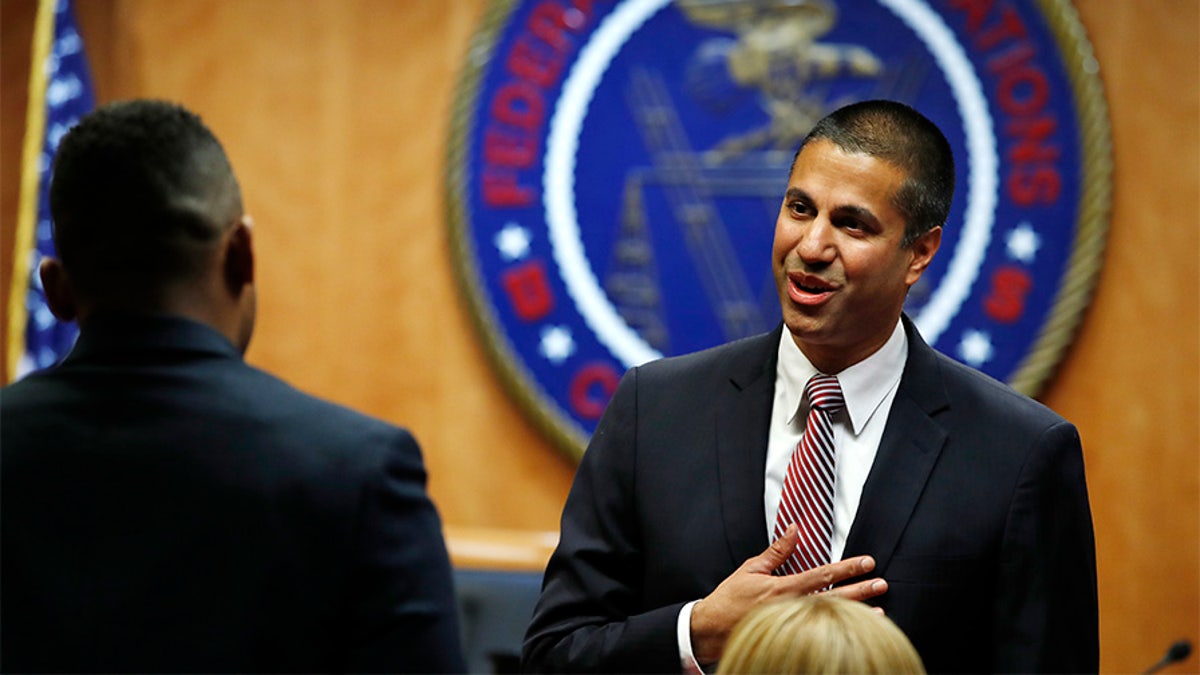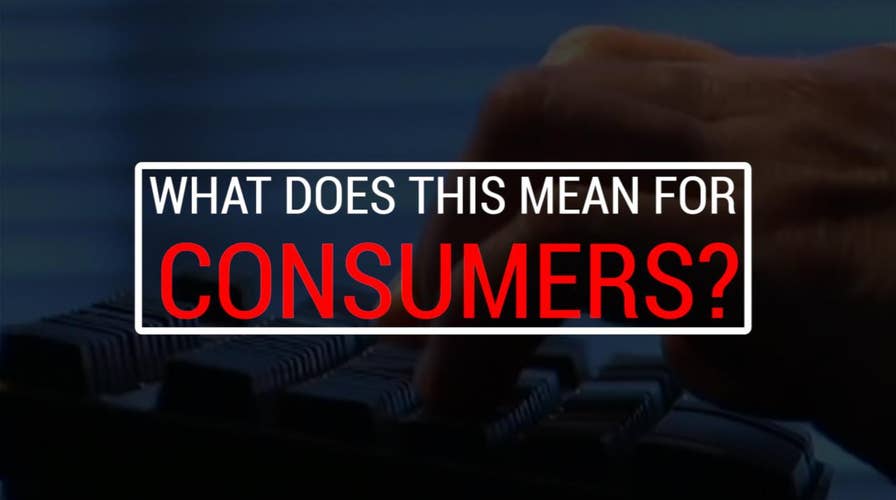Net neutrality rolled back: What's next for consumers?
The FCC has voted to roll back Obama-era net neutrality regulations. What does this mean for you?
The Federal Communications Commission voted Thursday to repeal Obama-era net neutrality rules, a move that Republicans say would preserve a “free and open” Internet but has triggered protests from consumer groups, Internet companies and Democratic lawmakers.
The repeal passed on a 3-2, party-line vote.
“It is time for the Internet, once again, to be driven by engineers and entrepreneurs and consumers rather than lawyers, accountants and bureaucrats,” FCC Chairman Ajit Pai said in remarks before the vote.
Pai, a Republican, announced plans in November to eliminate the rules, calling for a “light-touch regulatory approach” to the Internet. A longtime opponent of the regulations, Pai had signaled plans to undo the rules since taking over as chairman of the FCC this year.

FCC Chairman Ajit Pai led the effort, as the Federal Communications Commission voted Thursday to repeal Obama-era net neutrality rules. (Associated Press)
In a moment indicative of the heated atmosphere surrounding the proposal, the FCC hearing room in Washington was briefly cleared Thursday just before commisioners were set to vote on repealing the rules.
Pai was delivering a prepared statement on the vote when he was handed a note and stopped mid-sentence.
“On advice of security, we need to take a brief recess,” Pai said.
After the room was cleared, law enforcement officers with dogs were seen surveying the room. A few minutes later, commissioners and others were let back in, and the meeting resumed.
The net neutrality regulations imposed utility-style regulation on Internet service providers such as Comcast, AT&T and Verizon to prevent them from favoring their own digital services over their rivals – for instance, by blocking or slowing certain content.
Pai argues the net neutrality rules adopted during the Obama administration discourage the Internet service providers from making investments in their network to provide better and faster online access.
HOW THE FCC’S MOVE ON NET NEUTRALITY COULD IMPACT CONSUMERS
Democratic Commissioner Mignon Clyburn, who opposed the proposal, said Thursday she’s “among the millions who is outraged” because the FCC is pulling “its own teeth, abdicating responsibility to protect the nation’s broadband consumers.”
“There has been a darker side to all of this over the past few weeks,” she said. “Threats and intimidation. Personal attacks. Nazis cheering. Russian influence. Fake comments. Those are unacceptable. Some are illegal. They all are to be rejected.”
House Speaker Paul Ryan celebrated the move after the vote.
“Despite its unassuming name, the Obama administration’s net neutrality regulation threatens the free and open internet that has done so much to advance modern society," the Wisconsin Republican said in a statement. "The Trump administration’s action to roll back this egregious government overreach into the most innovative space will benefit all users of the internet."
Bob Quinn, AT&T’s senior executive vice president of external & legislative affairs, responded to the vote by saying they do “not block websites, nor censor online content, nor throttle or degrade traffic based on the content, nor unfairly discriminate in our treatment of Internet traffic.”
“In short, the Internet will continue to work tomorrow just as it always has,” Quinn said.
Still, there have been hundreds of public protests against Pai's plan and more than 1 million calls to Congress through a pro-net neutrality coalition's site.
Smaller tech websites such as Reddit, Kickstarter and Mozilla put dramatic overlays on their sites Tuesday in support of net neutrality. Twitter on Wednesday was promoting #NetNeutrality as a trending topic. Other big tech companies were more muted in their support.
Aside from nixing restrictions that keep broadband providers from blocking or collecting tolls from services they don't like, the change also bars state laws that contradict the FCC's approach and largely transfers oversight of Internet service to another agency, the Federal Trade Commission.
Public-interest groups Free Press and Public Knowledge are already promising to go after Pai's rules in the courts. There may also be attempts to legislate net neutrality rules, which the telecom industry supports. Sen. John Thune, a South Dakota Republican, on Tuesday called for "bipartisan legislation" on net neutrality that would "enshrine protections for consumers with the backing of law."
But that will be tough going. Democrats criticized previous Republican attempts at legislation during the Obama administration for gutting the FCC's enforcement abilities. Republicans would likely be interested in proposing even weaker legislation now, and Democrats are unlikely to support it if so.
Pai, meanwhile, put out a cheeky video with The Daily Caller to assure the public they could still do all their favorite things on the Internet without net neutrality rules.
Fox News' Jodie Curtis and The Associated Press contributed to this report.













































